July never ended, it’s an ongoing reality: Shayan
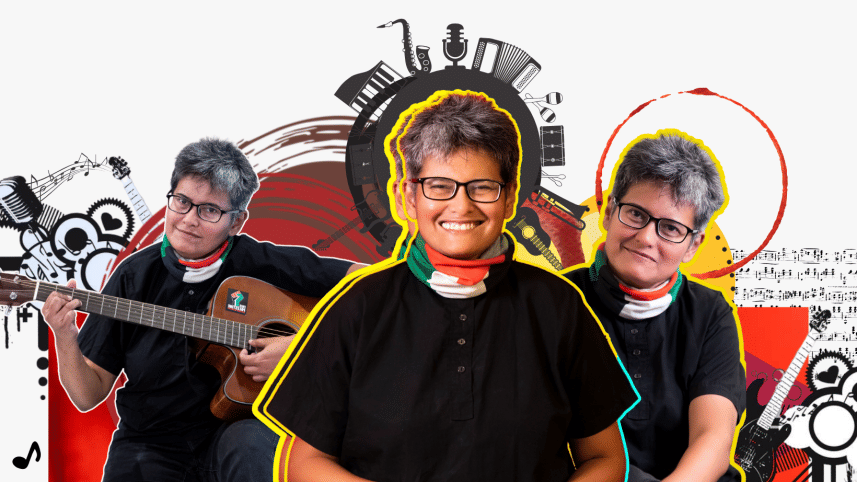
"If I don't rise to fight my fight,
then who will carry my fire tonight?"
Farzana Wahid Shayan, the acclaimed singer-songwriter whose songs catches the strings of truth in our times—and may best be described as a 'musical social commentary—has always found herself standing on the right side of history.
The artiste, whose lyrics and guitar immortalised the volatile, uncertain moments of the July Uprising through songs such as "Bhoy Banglay," "Jonotar Beyadobi," "Bhoy Banglay Bhoy," "Ei Meye Shon," "Rani Maa," and "O Neta Bhai," offered this correspondent a deeply personal glimpse into her creative process during a time when life seemed hollow and rebellion offered meaning.
"When Abu Sayed and Mugdho were killed, something broke inside me," said the singer, comfortable in her minimalist Dhanmondi studio. "Their deaths revealed the regime's cruelty in full. I had already been living in fear, so staying quiet under fascism no longer felt like living at all. I accepted the risk. It was either the streets—or silence."
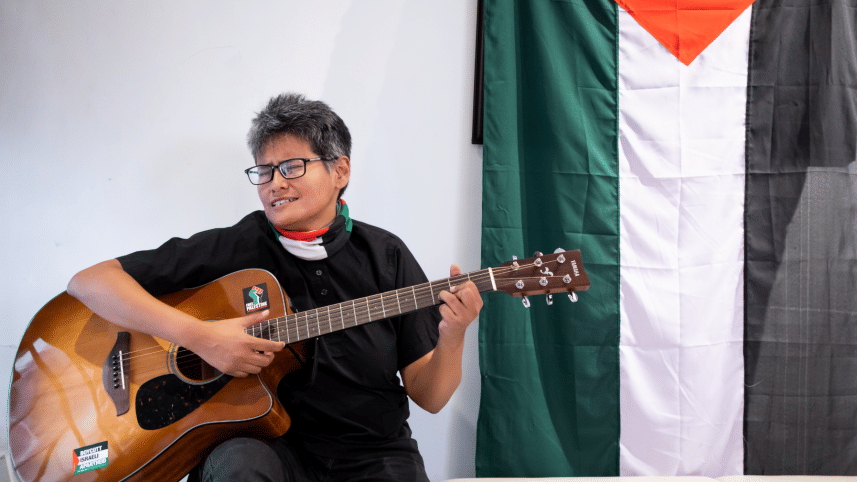
The singer recounted that pivotal moment of clarity at the 'Gayebana Janaza' held at the feet of the Shontrash Birodhi Raju Sharokh Bhashkorjo on the Dhaka University campus on July 17, 2024.
"I lived in fear for years. After singing 'Rani Maa'—a direct address to Sheikh Hasina following the rigged 2024 election—the threats intensified. I adapted to fear. But July brought something else. I was certain I would be jailed or killed if the regime persisted. But my life didn't matter more than the countless lives being barbarically snatched every day on the streets. We had to speak. We had to do something," reflected the artiste.
"There is no single memory—only a flood of emotions. July is my most intense lived-history, and I'm still inside it. Some of us came back, some didn't. That truth haunts me daily -- I'm alive because others aren't. That contradiction is the grief I carry," the songwriter added. "I think of Anas's letter, of Sayeed, of the unnamed, the unremembered. To speak their names is resistance. To remember them in our joy, our breath, our sleep—that is resistance. We must never forget the cost of this moment. Freedom is not free. And we must remain awake to injustice. Mourning and speaking—both are necessary."
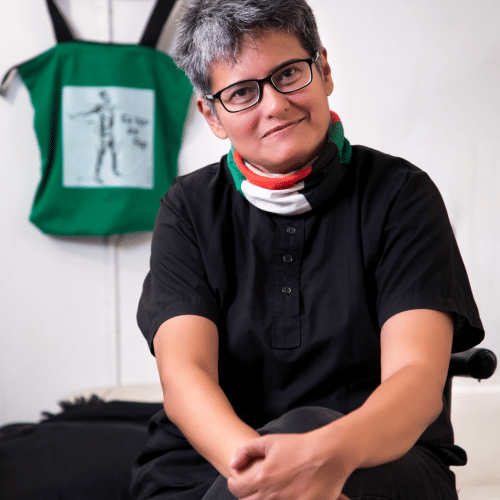
The singer, who has faced endless bullying, threats, and attacks for her beliefs and outspoken views, made it clear that things did not ease even after the fall of the regime.
"Actually, the worst came after Sheikh Hasina's fall—when factions tried to spin the illusion that her regime had allowed me to speak. If I'm silenced now, it means even that fragile promise of freedom is gone," explained the artiste.
"It took time to become functional again. July never ended for me—it's an ongoing reality. We lost young lives, and that loss redefined freedom as responsibility. Before July, even our thoughts were chained. Now, there's a fragile, chaotic freedom—and with it, a call to rebuild," said the singer. "The political awareness and collective courage I see today felt impossible before. Possibilities are endless. But they come with wounds that are still bleeding. We must carry both: hope and grief, freedom and accountability."
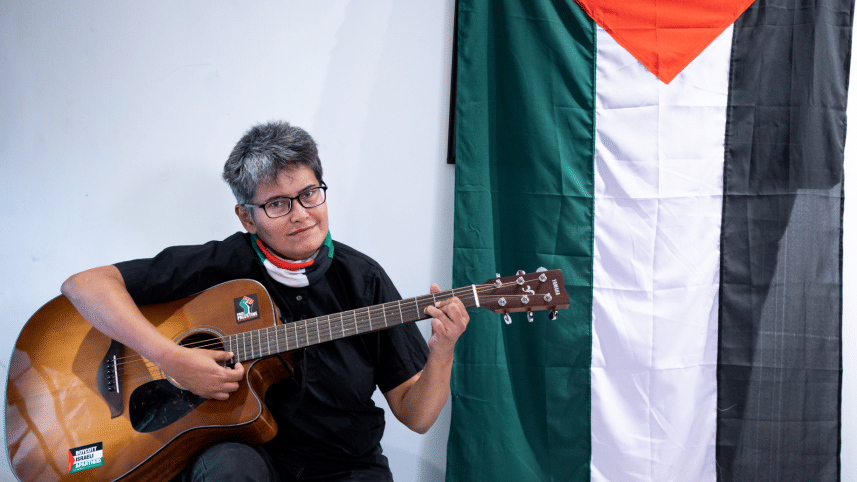
"For too long, the truth was unspeakable. Silence became survival. But silence now feels unethical. Every word unsaid is a betrayal of those who are gone. This freedom is a gift born of sacrifice. We owe it to them to express, to provoke, to grow," shared the songwriter. "I feel compelled to be more honest than ever—about myself, my society, and this moment. The strength of a society's freedom lies in how we use it, not just how we earned it."
What does the July Uprising mean to her? "July showed that art is not decoration. It is a dutiful disruption. It is fire," the artiste declared. "Songs, slogans, poems and the collective cultural resistance sustained us. They lit the path forward. I think of Hannan, Shezan, Parsha, of Nazrul, of today's poets who created without pause. Their work was not entertainment—it was endurance. It stitched us together in defiance and hope. I am grateful to each one."
What did July bring as a collective awakening? "Yes, the people are ready now. Ready for truth—even its ugliest forms," the singer answered. "We were conditioned to perform obedience. That era is fading. July cracked open the silence. But truth is a heavy thing. It demands strength to hold. We are learning. Slowly. Painfully. But we're learning."
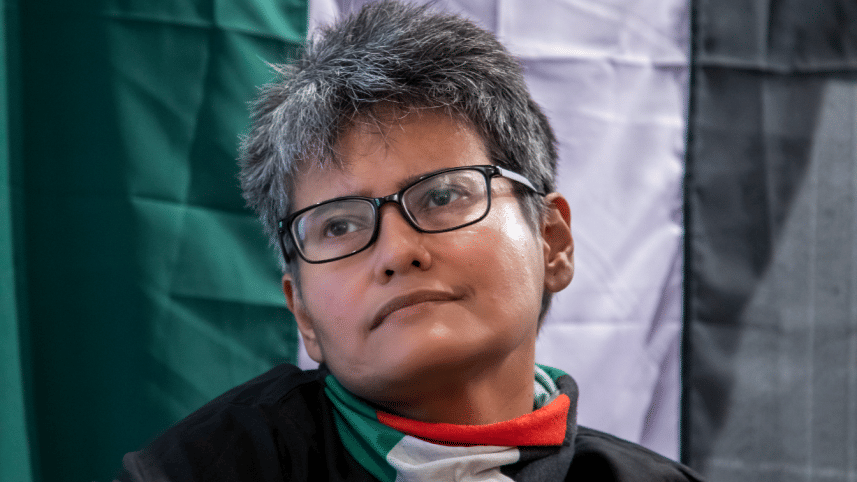
How did she manage to write songs in such turbulent times? "Actually, it has never been difficult for me," the songwriter said. "I process injustice by writing, composing, and singing. The songs come to me and I just go with the flow. It's how I survive. Even the unreleased songs were necessary—they held me when nothing else could. They're my resistance, the process of my healing, my truth."
Is she political? "You see everything is political—from gender-based violence to wanting a better educational system," the artiste explained. "Everything we come across in daily life and choose to feel about is a conscious and unconscious political decision. Therefore, yes, I am a very political person."
"However," she added, "I very consciously and very obediently refuse proximity to power. It dilutes critique and dulls conscience. As an artiste, I owe the people—not power—my voice. It's not a role. It's a responsibility. Whether or not we choose to speak about it is a choice, and I respect that. Not everyone can talk about politics and the right things, and that's alright."
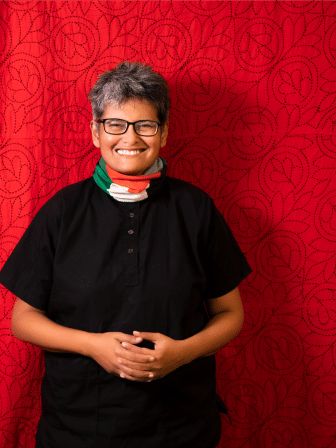
Has anything changed for the artiste since the fall of the regime? "Yes, I feel less afraid now—but not freer," she replied. "The violence has grown more desperate, more faceless. I've received death threats too many times to count. But silence is not an option. I won't become a pawn in anyone's narrative."
"As a woman in a patriarchal society, my very existence is resistance," the singer declared. "I've made peace with being a threat to those who fear a free voice."
"If I lived in an ideal world where no one labelled or bullied artistes, maybe life would be easier—but not as meaningful," the songwriter said. "The obstacles built me. They sharpened my art and deepened my roots."
"Everything is political. From Gaza to gender, education to economic injustice—our lives are shaped by policy and power. Being political doesn't mean chasing parliament. It means refusing to look away. I choose to stand with the people," the artiste added.
"Not every artiste must be rebellious. But if we had a truly people-centric legal system, more voices would rise," the singer said. "The question remains—are we silent because of oppression, or is oppression thriving because we remain silent? I believe the second is true. Fascism doesn't bloom overnight. We let it grow—by staying quiet, by compromising truth. When only a handful demand accountability, tyranny has no resistance."
"Art and rebellion cannot be manufactured. They must erupt naturally, like July did. July was our awakening. It gave us language, courage, rhythm," the songwriter said. "Artistes from all fields rose up. But the uprising was not a finish line—it was a beginning. Now we must cultivate that fire, that free soil of thought."
"Fascism may have been an era. But what we face now—mob culture, rising fundamentalism—is formless, shifting, and just as dangerous. And so, our resistance must evolve too," the artiste reflected.
"I don't engage with those who supported repression—through silence or open approval," she said. "I won't attack them, but I won't offer respect either. Supporting an oppressor may not be a crime, but it is a profound ethical failure. Their silence helped normalize brutality. That choice, in my view, is theirs to carry—a permanent, shameful stain."
"An artist's highest calling is to stand with the oppressed, to confront injustice, and to ask: how far can my art reflect truth?" said the singer. "Those who turn away from that calling waste not just their talent, but their chance to matter."
"There are days I feel lost, exhausted, unsure. But I've made a vow—to choose life, and to become hope. For myself. For others. That's a value I hold close," the moment felt as if the walls were really closing in on the artiste. "I know I'm privileged. And sometimes, sadness feels like a luxury I can't afford. Still, I find inspiration everywhere. In people. In love. In a rickshaw-puller singing in the rain."
"And I love my country—deeply. That love keeps me going. That love is enough. I no longer save my dreams for the future—I live them now," she asserted.
The ever-rebellious songwriter concluded with a vision of hope: "My deepest hope is that we cultivate a sense of ownership over this country. Bangladesh will become whatever we build with intention today. Ownership brings responsibility—and with that comes power. If we believe it's ours, the possibilities are endless."
Like her favourite singer Nina Simone, Shayan wants to follow her own narrative—one rooted in belief, adapted to the needs of the moment, and unafraid to evolve.




 For all latest news, follow The Daily Star's Google News channel.
For all latest news, follow The Daily Star's Google News channel. 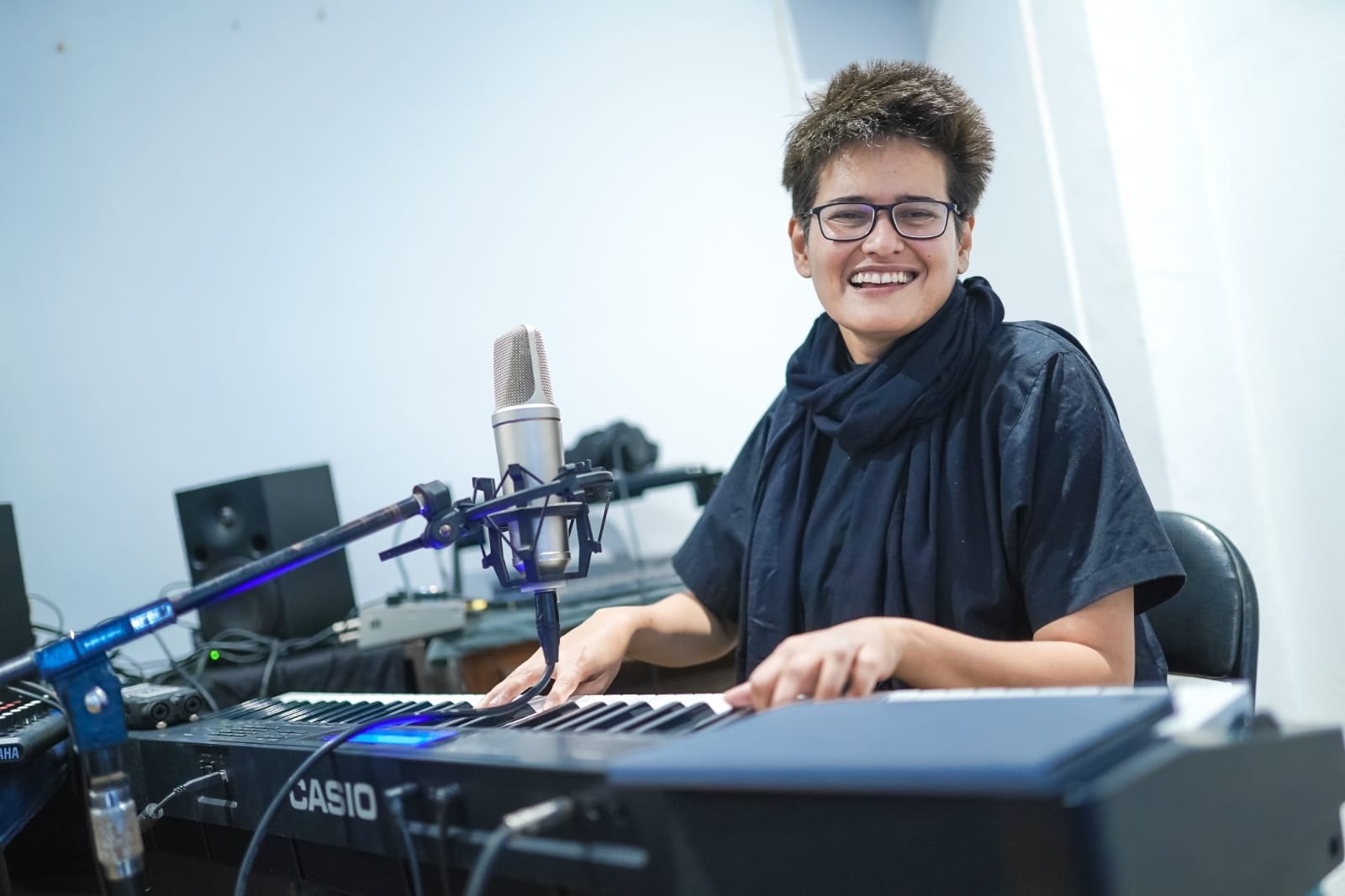

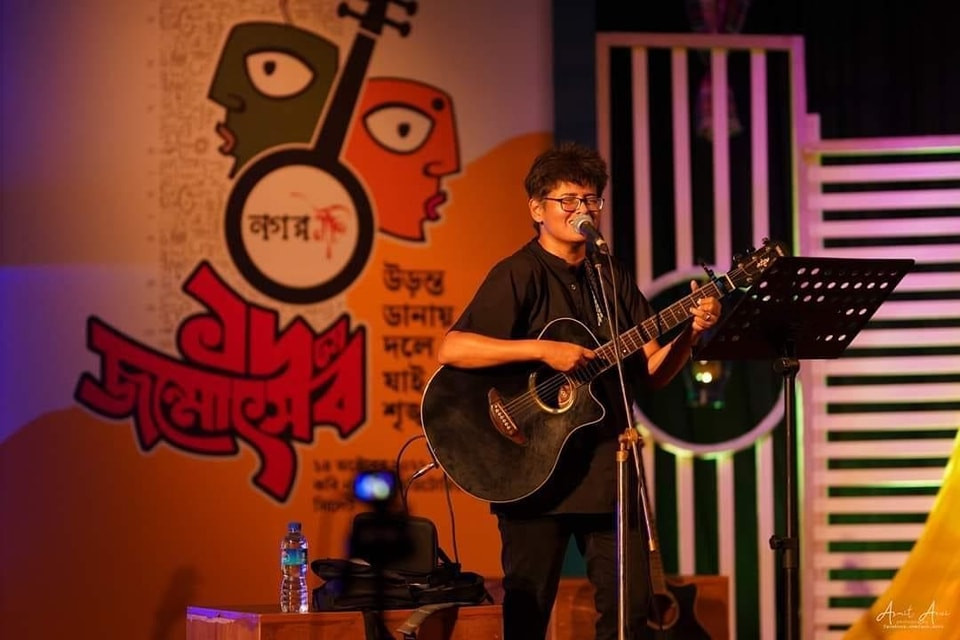
Comments